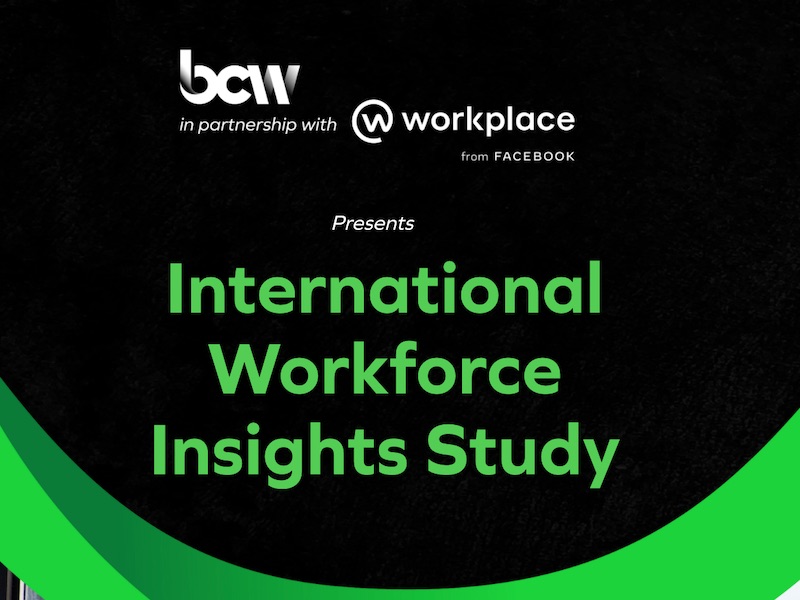Maja Pawinska Sims 09 Nov 2021 // 1:18PM GMT

LONDON — The workplace power dynamic has shifted in favour of employees over the course of the pandemic, according to a new study from BCW.
The agency’s inaugural International Workforce Insights Study found that more than half of all employees say they feel more empowered to influence change in their workplace compared to a year ago, including relating to business strategy (54%), company culture (55%) and their experience of work (59%). This feeling of empowerment was most pronounced among Gen Z and Millennials.
The study of more than 7,000 employees from across five industries and six countries, found that despite widespread difficulties caused by Covid-19, most employees say they feel more productive (62%), more connected to their colleagues (62%), more valued by their employer (60%) and a stronger sense of workplace community (59%) since the start of the pandemic.
In addition, 59% said that they have seen an increase in leadership listening to employee feedback, as well as improvements to their working experience (59%), work culture (58%), and work life balance (60%) over the same period.
The research found that flexibility is a key priority for the global workforce moving forward. Flexible hours or a hybrid work environment (67%) are the top changes employees are looking for from their organisations, with other top-ranked demands of employers including meaningful work, feeling supported and valued by managers and team members, workplace benefits and perks, and effective leadership.
BCW head of transformation James Morley said employees were feeling “more valued, more empowered and more vocal” about their expectations in the workplace, and as leaders prepare for the ‘next normal’ – including moves to implement return to office policies – they need to be mindful of these expectations and needs.
He told PRovoke Media: “So much has changed over the past 18 months, and we wanted to see how future expectations of work had changed, combined with the war for talent and the ‘great resignation. The data showed how companies responded in the pandemic has reset the expectations of what is possible when companies need to do something, and how leaders led their teams through it and brought people together.
“It showed employees that things can be done quickly and successfully, and has changed the whole dynamic of how employees think about how they want to work, and whether they have a voice. We’re now at a crossroads as companies are thinking about returning to the office, and there is anxiety among employees, who don’t want to lose the positives, the benefits and flexibility.”
And he said failure to adequately address these expectations would likely lead to high rates of attrition, particularly among younger generations. One in five Gen Z respondents (21%) and one in six Millennials (18%) said they were likely to leave their current employer within the next year, with the biggest difference between those saying they will leave their company within the next year and those saying they will stay is whether they see a commitment to fostering culture, employee value, and the ability for employees to have their voices heard.
“The data also showed Gen Z and Millennials – now the most dominant segment of the workforce – are feeling very empowered and influential in organisations, and if their expectations are not met they will be the most likely to move, which is important because of the talent shortage in many industries.”
Morley said the key takeaway for corporate communicators and employee engagement specialist from the research was that “the ability to listen and hear the voices and opinions of employees is critical, and keeping those conversations going is fundamental. As, as ever, so is transparency of communications, and the dynamics between employees and leaders is shifting. Employees want to believe in the work they are doing, and they want flexibility. It comes down to redefining the purpose of the workplace itself.”
The survey, in partnership with Workplace from Facebook and market research firm Mercury Analytics, included employees of companies of more than 1,000 employees from five industries (consumer goods, hospitality, manufacturing, financial services/ insurance, and healthcare/ pharmaceutical) across six markets (US, UK, France, Germany, the Netherlands and Australia). A total of 7,018 respondents were surveyed between August 24 and September 7, 2021.


































.jpg)





.tmb-135x100.jpg)











